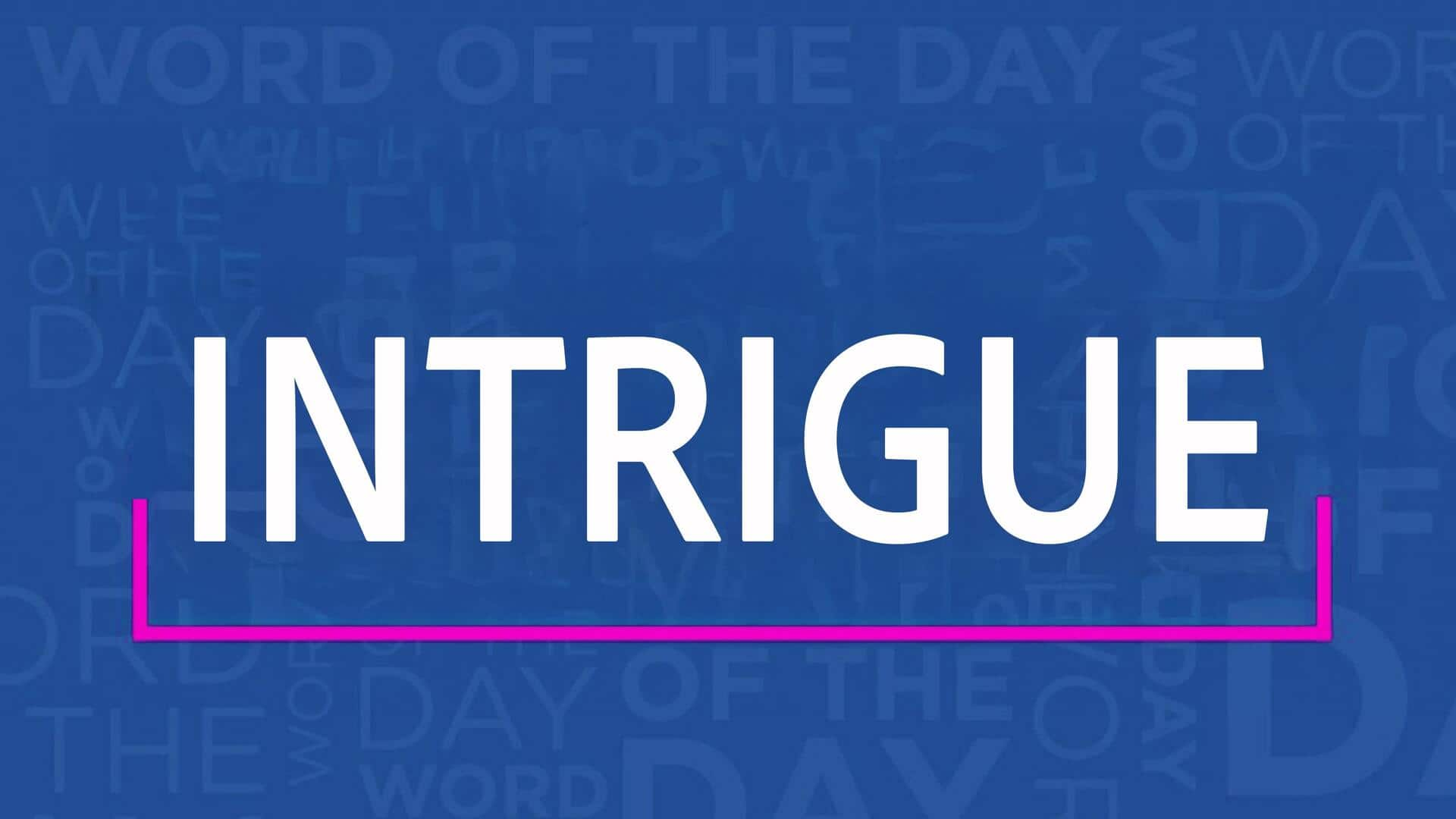
Word of the Day: Intrigue
What's the story
The word "intrigue" can be used as both a noun and a verb. As a verb, it means to arouse someone's curiosity or interest. As a noun, it refers to a secret plot or mysterious plan. Whether you're fascinated by a story or caught in a web of mystery, "intrigue" fits both situations perfectly.
Origin
Origin of the word
The word "intrigue" comes from the French word intriguer, which means "to plot or scheme." It was borrowed from the Italian intricare, meaning "to entangle." Over time, English adopted "intrigue" to refer to both mysterious planning and the feeling of being deeply interested or curious about something.
Synonyms
Synonyms for 'intrigue'
Some common synonyms for "intrigue" include fascinate, captivate, interest, puzzle, bewitch, engage, enthrall, and attract. While many of these words express curiosity or attention, "intrigue" often adds a layer of mystery, making it more suitable for suspenseful or complex situations.
Usage
Sentence usage
Here are a few examples to show how "intrigue" can be used in everyday language: "The ancient ruins continue to 'intrigue' historians around the world." "There was an air of 'intrigue' around the new neighbor no one had met." "Her unique style and confidence 'intrigued' everyone at the event." "The spy novel was full of 'intrigue' and unexpected twists."
Writing
Why use the word
Using "intrigue" helps bring depth and curiosity into your speech or writing. It goes beyond simple interest and adds a feeling of mystery or complex attraction. Whether you're writing a story, describing a person, or discussing a mystery, "intrigue" brings richness and suspense to your words.